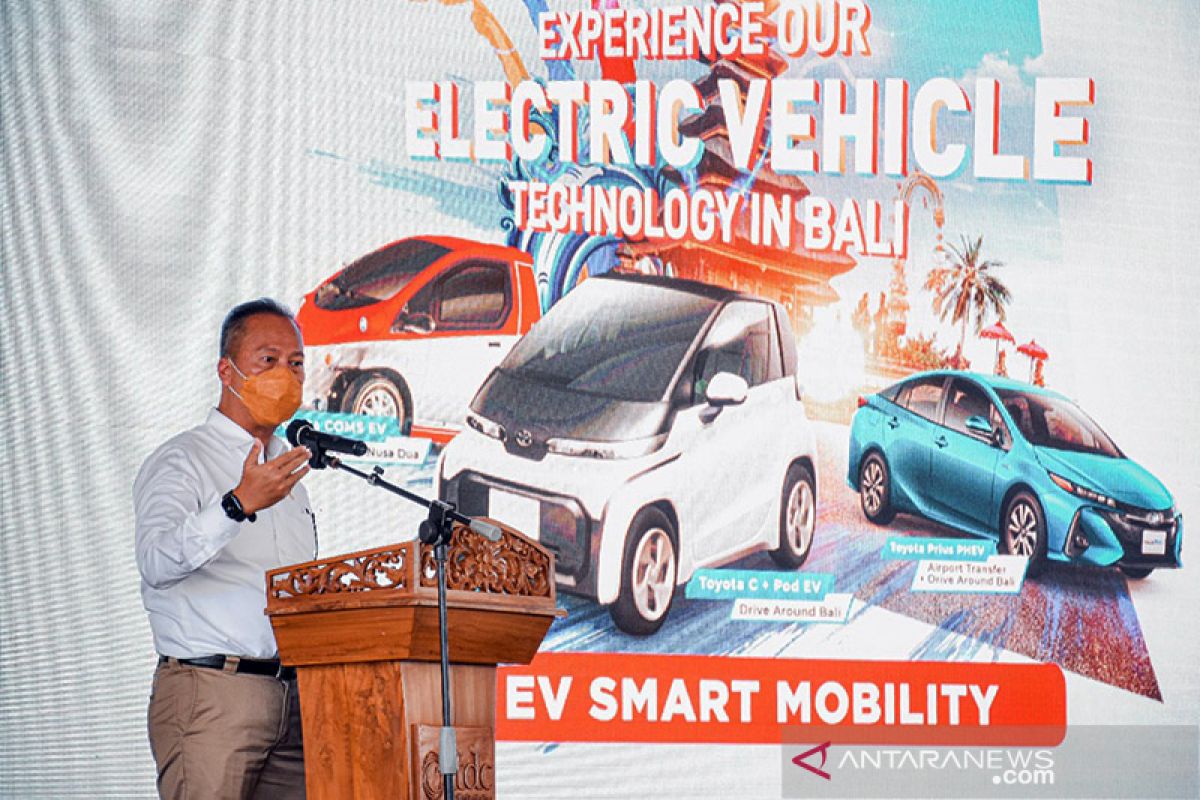The Industry Ministry is targeting to produce 600 thousand units of electric cars and 2.45 million units of battery-powered motorcycles in 2030.
The production target of battery-powered electric vehicles will hopefully be able to reduce CO2 emissions from cars by 2.7 million tons and from motorcycles by 1.1 million tons, Industry Minister Agus Gumiwang Kartasasmita said in a written statement released on Wednesday.
So far, three domestic companies have built facilities for manufacturing battery-powered electric vehicles, with a combined production capacity of 1,480 units per year, he informed.
To push the production of battery-powered electric vehicles, the government is providing fiscal and non-fiscal incentives to consumers as well as manufacturers, he said.
The incentives for consumers include zero percent luxury sale tax (PPnBM), a 10-percent cap on regional tax, zero percent down payment, low interest, electricity connection discount, special police number, among other things, the minister informed.
Meanwhile, the incentives for manufacturers cover tax holiday, mini tax holiday, tax allowance, import duty exemption, government-borne import duty, and super tax deduction for research, development, and demonstration (RD&D), he added.
"The automotive industry is one of the key sectors contributing significantly to the national economy. Right now, 21 four or more wheeled vehicle manufacturers are operating in Indonesia," he said.
Nearly 38 thousand workers are directly employed by the automotive industry and more than 1.5 million people are employed along the value chain of the industry, he pointed out.
"The production and wholesale of four or more wheeled vehicles in the January-February period reached 152 thousand units and 102 thousand units, respectively," Kartasasmita said.
To boost the sale of locally-made, four-wheeled motor vehicles with an engine capacity of up to 1,500 cc, the government has relaxed the government-borne luxury sale tax (PPnBM-DRP) from March 1 to December 31, 2021.
"Starting April 1 (2021), the relaxation will be expanded to (four-wheeled motor vehicles), with an engine capacity of up to 1,500 cc," the minister said.
Based on the new regulation to be issued, the local purchase of vehicles with engine capacity of below 1,500 cc will be lowered to 60 percent from 70 percent.
"The reduction of local purchase under the first phase of the sale luxury tax relaxation program will hopefully attract investors to increase investment for supply chain in Indonesia and will benefit the public and the government," Kartasasmita said.
Related news: Auto industry leads as significant contributor to national economy
Related news: Industry Minister optimistic on economic rebound in Q3 2020
Editor : Mahdani
COPYRIGHT © ANTARA News Kalimantan Selatan 2021

